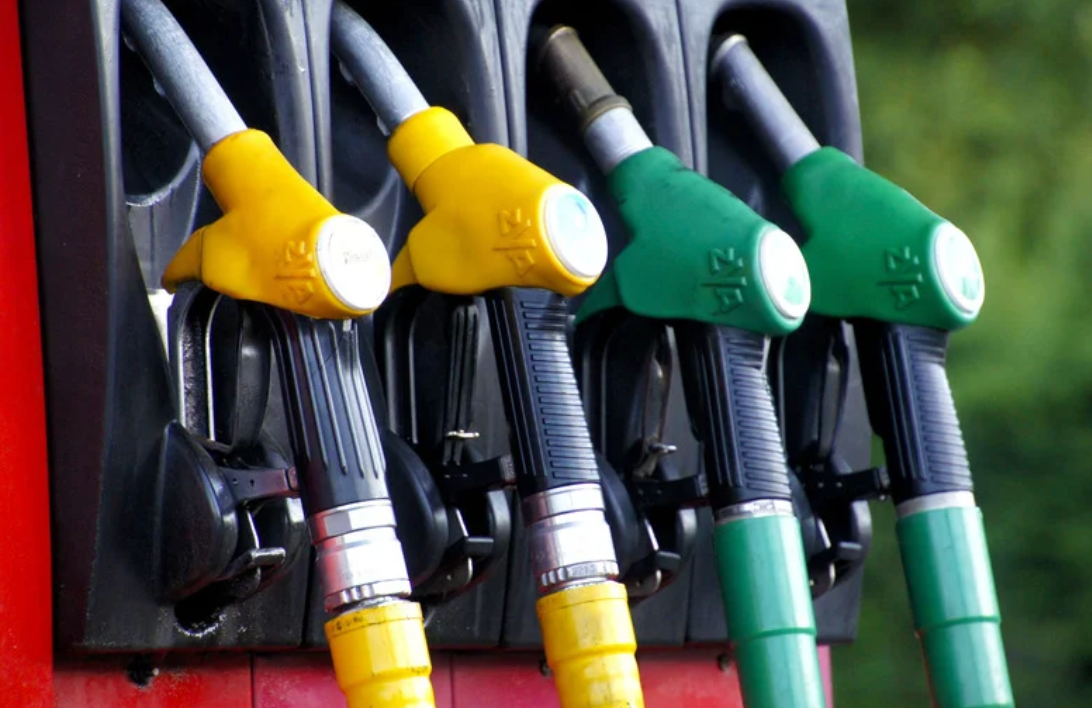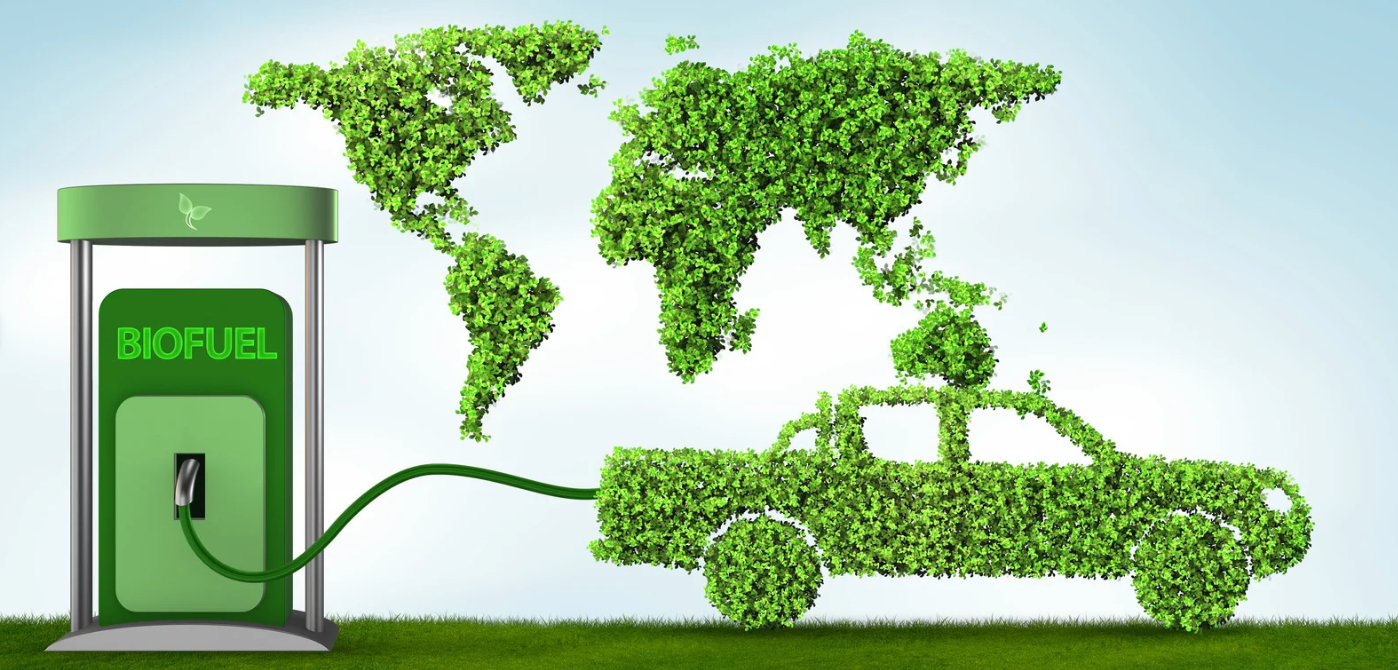Fossil Fuels – The Biggest Driver of Climate Change

Updated at 2025-08-22
These fuels are used to produce electricity, heat, and transportation fuels – but at a high cost to the climate and our future.
What Are Fossil Fuels?
Fossil fuels formed over millions of years. They consist of ancient plants and animals that once lived in oceans and on land. When they died, they sank to the bottom, were covered by sediments, and subjected to high pressure and heat. Over time, these remains transformed into coal, oil, and gas.
Today, we extract these fuels and burn them for energy – releasing carbon dioxide that has been stored underground for millions of years. This accelerates climate change.
Fossil fuels are also a finite resource. Once they are used up, they cannot be replenished within any foreseeable timeframe. The more we consume, the harder and more expensive it becomes to extract what’s left. That’s why reducing our dependence on them is not only a climate issue – it’s also about securing future energy supplies.
-2.png)
Carbon Dioxide and the Greenhouse Effect
When we burn fossil fuels, carbon dioxide (CO₂) is released into the atmosphere. CO₂ is a greenhouse gas that traps heat and contributes to global warming. The problem is that fossil CO₂ adds new carbon to the atmosphere – carbon that was previously locked away underground. This disrupts the planet’s natural carbon cycle.
All fossil fuels emit CO₂, but in different amounts. Coal emits the most carbon per unit of energy produced, followed by oil, gasoline, and diesel. Fossil gas emits the least, but comes with other problems.

Fossil Gas and Methane
Fossil gas consists mainly of methane, a greenhouse gas that is about 28 times more powerful than CO₂ over a short time period. Methane can leak during extraction, transport, and use – and these leaks are difficult to prevent. As a result, the climate benefit of fossil gas can be quickly erased.
Fossil gas does burn relatively cleanly, with fewer harmful pollutants like sulfur dioxide, particulates, and nitrogen oxides. It can be replaced by biogas, which also contains methane but comes from renewable sources. However, methane leaks must also be minimized in biogas systems to ensure real climate benefits.
Disrupting the Carbon Cycle
Carbon exists on Earth in various reservoirs – in forests, soils, oceans, the atmosphere, and living organisms. In nature, carbon moves between these systems in a balanced cycle. But when we humans extract and burn fossil fuels, we add carbon to the atmosphere faster than nature can absorb it. The result is a higher concentration of CO₂ in the air – and a stronger greenhouse effect.
Fossil fuels contain carbon from plants that lived millions of years ago. When we burn these fuels, we release ancient carbon that has been stored underground for ages. This rapid increase in atmospheric CO₂ is having a major impact on the climate.

Biofuels – A Solution with Downsides
Burning biofuels like wood, wood chips, or pellets also releases CO₂ – just like burning fossil fuels. The difference is that biofuels come from plants that have recently absorbed carbon from the atmosphere, which is why they are often called climate-neutral. But the reality is more complicated.
It can take decades for new trees to absorb the same amount of CO₂ that is released when wood is burned. In the meantime, those emissions contribute to warming. If forests are harvested too quickly, ecosystems can be harmed and carbon sinks reduced.
Biofuels are not automatically sustainable. Their climate impact depends entirely on how they are produced and used. Burning them also affects air quality, since it releases particulates and other pollutants.
Biofuels can play a role in the transition – especially when made from forestry or agricultural residues. But they should be used with caution and must not replace efforts to improve energy efficiency or scale up solar and wind power.

Forests and Oceans
Sweden’s forests act as carbon sinks – they absorb more CO₂ than they emit. Today, forests are growing faster than they did 100 years ago, largely thanks to forest management and fewer forest pests. The same trend can be seen in many northern countries. This means that forests help counteract climate change – as long as they are properly managed.
But forests are also vulnerable. Climate change can make them more susceptible to droughts, storms, and insect infestations. If forests start releasing more CO₂ than they absorb, they could become a climate burden.
The oceans also play a crucial role. They have absorbed 20–30 percent of the carbon emissions caused by humans since the 1980s. CO₂ dissolves into the water and is transported to deeper layers. But this process is slow, and the ocean’s capacity to absorb carbon is not unlimited. Increased CO₂ levels also cause ocean acidification, which harms marine life like corals and shellfish.
Fossil Fuels and Conflict
Fossil fuels are not just an environmental issue – they also play a role in geopolitics and war. Revenue from oil and gas has funded conflicts and dictatorships. One clear example is Russia’s invasion of Ukraine. The EU alone used to pay billions of euros daily to Russia for fossil fuels – money that ultimately helped finance weapons.
Greenpeace and other organizations argue that this must stop. Solar and wind energy are not just better for the climate – they are also more democratic. No one can own the sun or the wind. The transition to renewable energy is therefore not only an environmental issue – it’s also a peace issue.

The Way Forward
To halt climate change, we must drastically – and quickly – reduce greenhouse gas emissions. That means phasing out nearly all fossil energy. Sweden has already made progress: the use of coal and heating oil has declined, and new electricity generation often comes from solar and wind. But more is needed.
We need smart policies, new technologies, and investments in renewable energy. The Swedish Environmental Protection Agency is working toward this, including through action strategies and regulations for industry and transport. The goal is clear: a future without fossil fuels – for our sake and for future generations.
Related content
Here you can find articles and pages relevant to this subject.